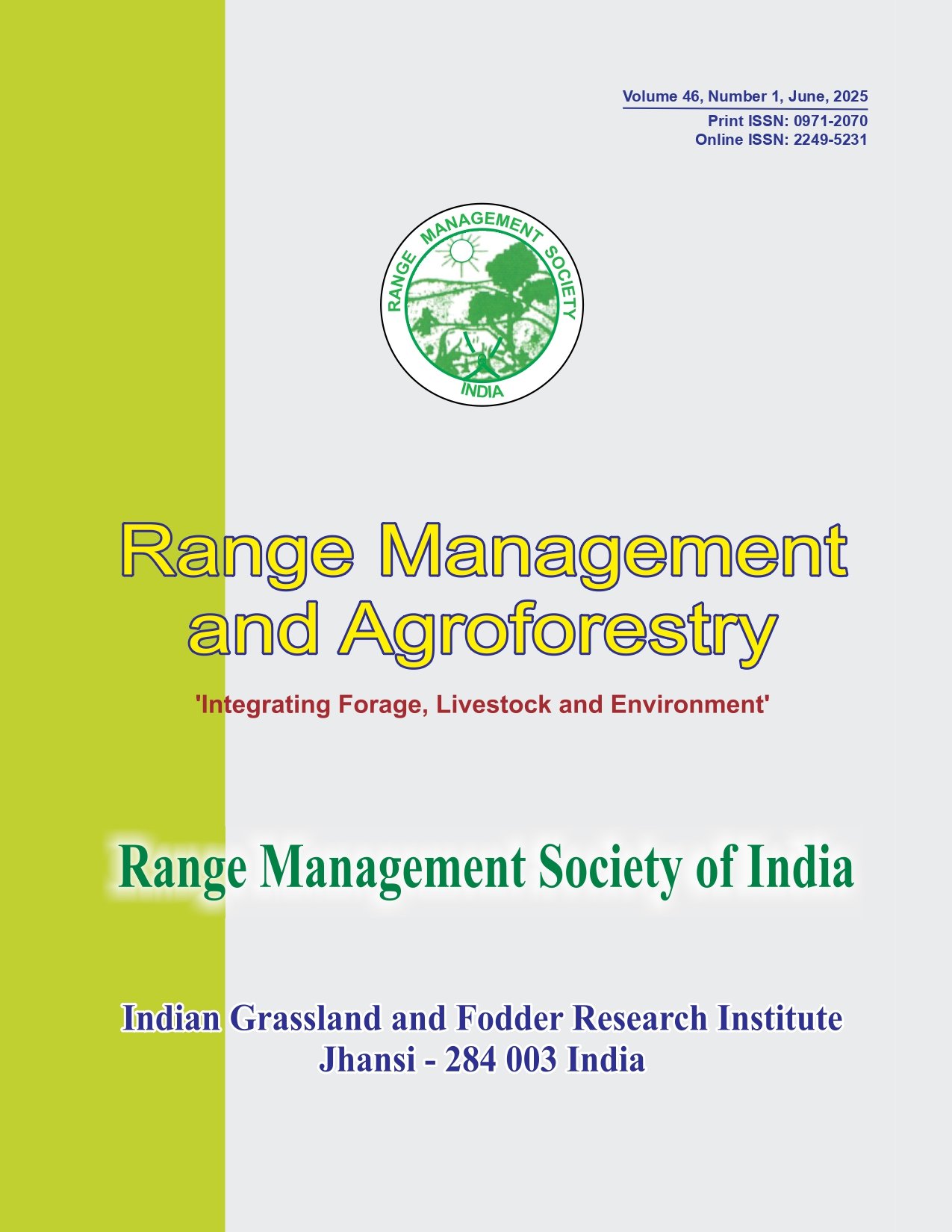Efficacy of biocontrol agents against Sclerospora graminicola causing downy mildew in fodder pearl millet
Abstract
Downy mildew incited by is the main hurdle in the successful cultivation of pearl millet Sclerospora graminicola and is capable of causing more than 60% losses in terms of grain and fodder yields. The disease could be managed by fungicide applications but due to several associated environmental and health-related issues, there was a necessity to formulate some eco-friendly measures for downy mildew management. Thus attempts were made to find out the usefulness of three biocontrol agents ( , Bacillus subtilis Pseudomonas fluorescens Trichoderma viride and ) and two fungicides (mancozeb 64% + metalaxyl 4% and metalaxyl) under field conditions for three seasons (2017-2019) against downy mildew. The least downy mildew incidence (14.37%) was observed with seed treatment + foliar spray of as compared to untreated control B. subtilis (31.30%) with 54.10% disease reduction followed by seed treatment + foliar spray of (17.58% P. fluorescens disease incidence) with 43.82% disease control. The same treatments were significantly superior over others in increasing the green fodder yield by 56.59 and 40.79% respectively. Another treatment proven effective was seed treatment + two foliar sprays of which provided more than 43% reduction in downy mildew T. viride incidence as compared to chemical check which provided 30% disease control and increase in green fodder yield. These findings advocated the potential use of biocontrol agents against downy mildew of pearl millet in an eco-friendly manner.




